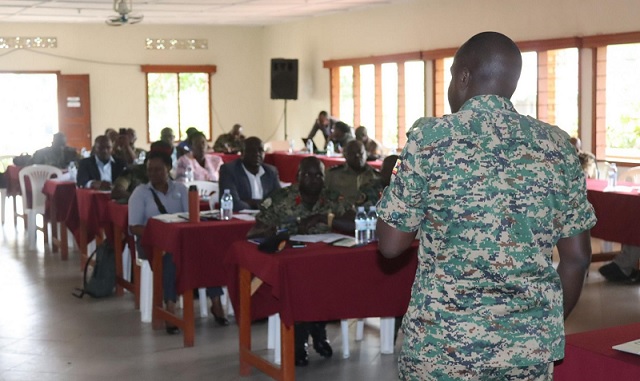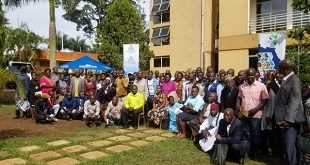
Kampala, Uganda | THE INDEPENDENT | The National Wildlife Anti-Crime Coordination Task Force-NWCCTF is calling for community support in the fight against wildlife trafficking and poaching.
The task force was initiated in 2018 and launched in 2020 to promote cooperation and coordination among law enforcement agencies to combat wildlife crime in Uganda. It followed increasing cases of wildlife trafficking and poaching in the conservation areas across the country.
According to the 2018 Uganda Wildlife Trafficking Assessment report produced by the global monitoring group TRAFFIC, Uganda is one of the common transit points for the trafficking of wildlife and wildlife products in the Central and East Africa region, a trend which puts Uganda’s wildlife at risk.
Poaching and wildlife trafficking are rampant in the districts of Bundibugyo, Kasese, Rubirizi, Mitoma and Kanungu, according to records by the task force, which has handled more than 1,300 cases involving 2,209 suspects over the last two years.
During this time, 227 cases were concluded in the courts of law and perpetrators were subsequently convicted. 28 of the suspects were security personnel deployed around the conservation areas. The task force has also been able to recover 12 AK-47 machine guns and wildlife species including more than 700 kilograms of pangolin scales, and 58 kilograms of ivory, among others.
Task Force Commander Col. Allan Kyangungu says that despite the progress, there is still a need to establish strong relations with the community around the conservation areas in order to break down the criminal networks. He added that they have recruited and trained 60 wildlife crime investigators and are now sensitizing UPDF units to discourage men in uniform from engaging in or facilitating wildlife crime.
However, the team leader decried limited funding to the task force as well as inadequate community awareness of the value of wildlife. He observed that the operations are also curtailed by the existence of illegal guns, lack of proper gun records, and failure by security heads to monitor those possessing guns among others.
Maj Joshua Karamagi, the Wildlife Crime and Investigations Team Leader said they cannot work in isolation without the support of the local communities. He equally asked district security heads to establish tracking systems of wildlife crime cases in their districts to ensure they are fully investigated.
Seg. Makombo Abdallah, a wildlife crime expert at Uganda Wildlife Authority said that because of the lucrative trade, those in wildlife trafficking are developing advanced methodologies to evade security. He said they need to work with the local community to break down the chain that is facilitating wildlife crime.
John Makombi, the Director in Charge of Conservation called for more support from the local leaders and asked them to appoint focal persons to work with the task force. He said the illegal wildlife trade currently is a complex and lucrative business managed by global cartels and thus the task force has to use futuristic strategies if they are to beat them at their own game.
Fort portal Deputy Resident City Commissioner Emmanuel Businge wants the Resident State Attorneys to be involved in the work of the task force noting that they have been occasionally accused of frustrating cases.
His counterpart Meryscent Abiine Ariyo, the deputy RDC of Mitooma said the local security leaders were determined to support the task force to deal with wildlife crime.
Agnes Biira, a resident of the Kikorongo trading centre, said that introducing a task force could also help deal with some of the UWA staff she said were collaborating with poachers.
*****
URN
 The Independent Uganda: You get the Truth we Pay the Price
The Independent Uganda: You get the Truth we Pay the Price



